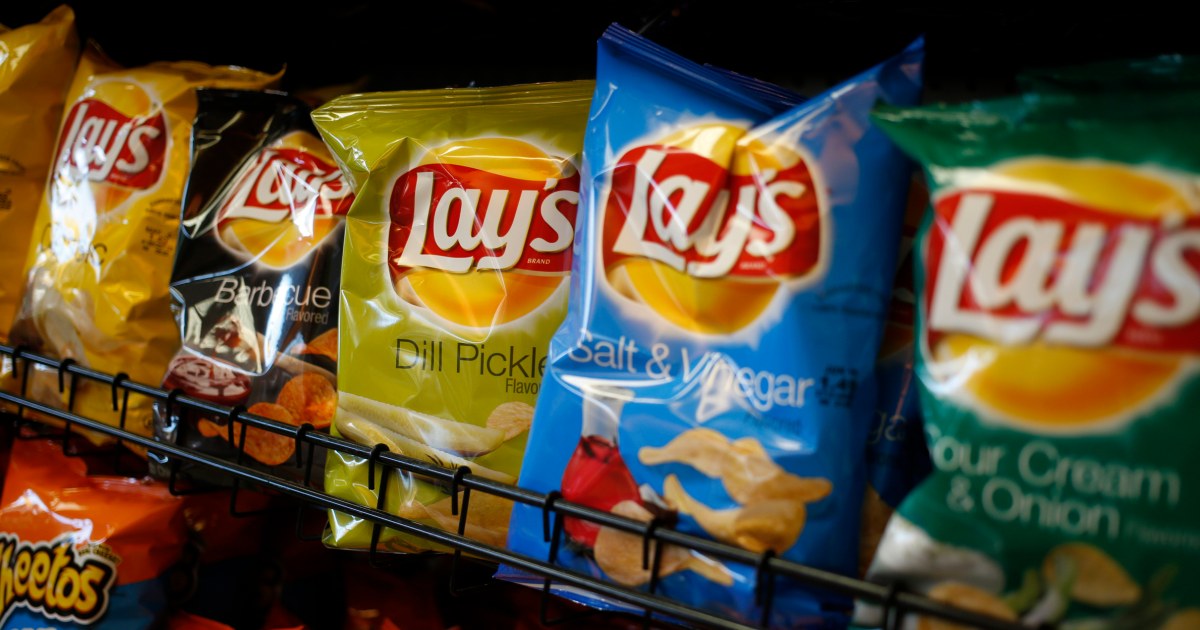The agency wants to lower how much salt we consume over the next three years to an average of 2,750 milligrams per day. That’s still above the recommended limit of 2,300 mg.
The Food and Drug Administration on Thursday laid out fresh goals to cut sodium levels in packaged and processed foods by about 20%, after its prior efforts to address a growing epidemic of diet-related chronic diseases showed early signs of success.
The FDA in October 2021 had set guidelines to trim sodium levels in foods ranging from potato chips to hamburgers in a bid to prevent excessive intake of salt that can trigger high blood pressure, a major risk factor for heart disease and stroke.
The agency is now seeking voluntary curbs from packaged-food makers such as PepsiCo, Kraft Heinz and Campbell Soup. The companies did not immediately respond to requests for comment.



yea, the whole “everything is bad for you if you do enough of it to kill yourself!” is a pretty common response. and yes, that’s true. there IS a threshold for everything. one cigarette won’t kill you either.
Interesting. The fearmongers at school told us it could.
Agreed but the cigarette analogy is not really accurate.
Sugar is arguably good for you in moderation. We evolved to seek out sugar in the form of fruits, berries, etc. Quick energy, fast acting carbohydrates etc.
Can’t think of how this translates to a single cigarette lol.
We evolved to seek out sugar because it is energy dense in a time when food wasn’t plentiful
Today we have more food than we know what to do with
“In moderation” being the key part. As in, not selling drinks and snacks that are like 30% sugar
Agree 100%. And arguably “in moderation” is much lower than people might want it to be. Plus most of this stuff is processed with high fructose corn syrup trash.
HFCS is literally just liquid sugar.
HFCS isn’t even just one product. There are different blends that are all HFCS. At the extreme, HFCS-90, is far FAR different than table sugar. HFCS-55 is close to table sugar (which would be numbered “50” if table sugar used that same numbering scheme), and there’s HFCS-42 which is farther away from table sugar.
The Corn Refiners Association (CRA) have been successful in rebranding HFCS under a bunch of different names so you don’t know it anymore. Current labeling has HFCS-90 (the worst kind) simply called “Fructose” on ingredient labels now. source
source2 which is a bit more sketchy to me
edit: corrected first source link
On the flip side, those snacks and drinks are ideal for athletes.
I wouldn’t want to stop having those foods available, simply because the majority of the population are idiots when it comes to fueling their bodies.
People need to have some self control, ffs.
why not? if you’re going by “too much of anything is bad for you,” then doesn’t it follow that “NOT too much of anything isn’t necessarily bad for you”?
so yea, one soda won’t kill you = true. also one cigarette won’t kill you = true.
what i’m getting at is that your “argument” isn’t one
The human body doesn’t need nicotine to survive